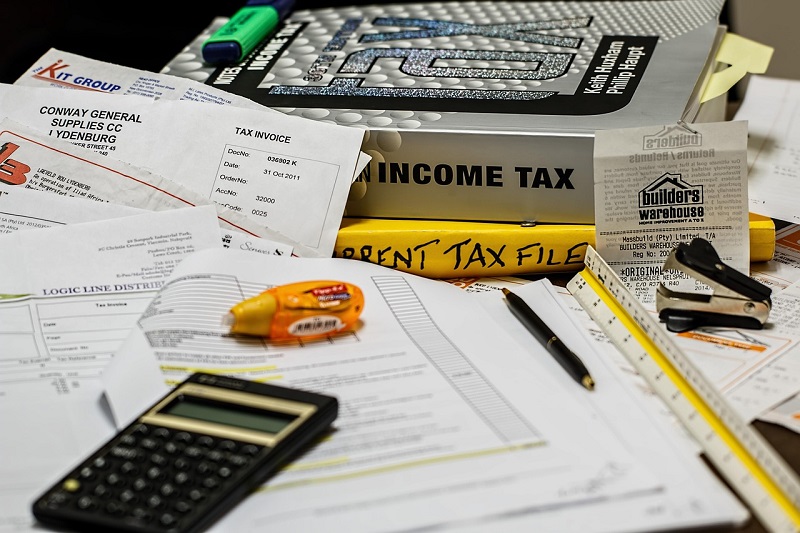Are you looking to maintain control over more of your hard-earned income?
For small business owners profits seem to disappear into tax payments before they can even be realized. Data shows small businesses will contribute $150 billion each year to GDP over the following ten years thanks to the extended 20% small business deduction. That’s a lot of economic power!
But here’s the kicker…
Small business owners are losing potential revenue because they overlook important tax-saving opportunities that could significantly strengthen their financial outcomes.
What You’ll Discover:
- Why Tax Efficiency Matters Now
- The 5 Most Overlooked Small Business Tax Deductions
- Entity Selection: Is Your Business Structure Costing You?
- Strategic Tax Planning Timeline for Maximum Savings
- Tools That Make Tax Management Easier
Why Tax Efficiency Matters Now
Tax efficiency involves more than reducing tax payments to the government because it requires strategic financial management to increase after-tax profits.
Small business owners rank high taxes and expiring tax provisions as their major concern which makes developing a robust tax strategy absolutely essential.
Small business owners face a unique challenge: Your expertise exists in your business field while tax regulations remain a complex landscape that changes regularly. The lack of tax knowledge generates significant financial losses for businesses through excessive tax payments each year.
The good news?
Small business owners are increasingly collaborating with specialized firms such as https://avenuesaccounting.com/ dedicated solely to small business tax strategies. Accounting experts can reveal hidden deductions and develop strategic plans that support your business objectives.
A recent survey revealed that 62% of participants favor maintaining the 20% Small Business Tax Deduction which shows that these tax benefits matter to both business owners and the general public.
The 5 Most Overlooked Small Business Tax Deductions
Do you claim every deduction you qualify for? Numerous small business owners fail to take advantage of these important tax-saving opportunities.
1. Home Office Deduction
Business owners who use a section of their home exclusively and regularly for work purposes can deduct certain home expenses. Business owners can deduct expenses related to mortgage interest along with utility bills, insurance payments, repair costs and depreciation.
While business owners typically shy away from this deduction due to audit concerns, proper documentation proves its full legitimacy.
2. Vehicle Expenses
You may find large deductions from your business-related driving activities. Business owners must select between using the standard mileage rate or logging actual vehicle expenses which cover gas, maintenance, insurance and depreciation.
3. Health Insurance Premiums
Self-employed business owners receive full deductions on health insurance premiums for themselves along with their spouse and dependents. The insurance coverage extends to medical services as well as dental and long-term care benefits.
Business owners can save thousands annually by taking advantage of this deduction.
4. Retirement Plan Contributions
Your retirement plan contributions create immediate tax deductions while simultaneously building your retirement savings. Self-employed people can choose between SEP IRAs, SIMPLE IRAs and Solo 401(k)s for retirement planning.
5. Business Travel & Professional Development
Business travel expenses are mostly deductible with airfare, lodging, transportation and meals being eligible (with meals only 50% deductible).
Investing in professional development through books and courses for your team and yourself proves to be both tax-efficient and a smart business move.
Entity Selection: Is Your Business Structure Costing You?
The selection of your business entity stands out as one of the most crucial tax decisions you will make. Each structure has different tax implications:
Sole Proprietorship
- Simplest structure with minimal paperwork
- Income passes through to your personal return
- Subject to self-employment tax on all profits
S Corporation
- Taxation that passes through to the owner, such as in a sole proprietorship.
- Potential to save on self-employment taxes
- You can receive a reasonable salary and additional distributions from your business.
LLC
- Flexible taxation (can elect different tax treatments)
- Limited liability protection
- An LLC has the option to be taxed using the structure of either a sole proprietorship, partnership, S corporation, or C corporation.
The 2025 State Tax Competitiveness Index reveals critical information about state tax structures essential for business establishment decisions.
Transforming your business structure requires careful consideration although it can lead to major tax benefits. You should assess your business structure choice every few years particularly when your revenue experiences substantial growth.
Strategic Tax Planning Timeline for Maximum Savings
Tax planning isn’t a once-a-year event. The most tax-efficient businesses maintain a consistent yearly schedule to optimize their tax planning strategies.
January – March: Review & Refine
- Evaluate last year’s tax results
- Update tax strategy based on new laws
- Meet with your accountant to set goals
April – June: Structure & Systems
- Implement accounting system improvements
- Review business structure for tax efficiency
- Set up tax-friendly benefits
July – September: Mid-Year Check-In
- Complete a mid-year tax projection
- Adjust estimated tax payments if needed
- Identify tax-saving investments (equipment, etc.)
October – December: Year-End Planning
- Make final retirement contributions
- Consider year-end bonuses or distributions
- Purchase necessary equipment or supplies
This quarterly system eliminates year-end chaos by enabling strategic decisions across the entire year.
Tools That Make Tax Management Easier
The ideal technology solution can create significant simplifications in the management of taxes.
- With QuickBooks Online and Xero as examples, Cloud Accounting Software provides automatic expense categorization together with real-time financial data access and digital receipt storage capabilities.
- Expense Tracking Apps enable users to digitally store receipts and track mileage via GPS to create expense reports (Expensify, MileIQ).
- Tax Planning Software enables users to project tax liabilities while modeling multiple financial scenarios and discovering possible deductions.
Small business owners typically manage their taxes themselves yet require professional tax help when their business grows quickly or when facing audits or dealing with multiple state taxes.
Final Tax Strategies Breakdown
All small business owners can achieve significant tax savings through proper planning strategies. The methods presented to business owners serve as legitimate techniques that experienced entrepreneurs utilize to maximize their financial returns.
With constant shifts in tax regulations staying informed becomes half the battle. Small business owners who prioritize their tax strategies gain essential advantages because high taxes continue to be their primary concern.
Consider this: By decreasing your effective tax rate by 5%, how much extra capital can your business generate for growth opportunities?
Most small businesses could utilize thousands of dollars per year to purchase new equipment or expand their workforce through hiring and marketing campaigns.
Your business strategy demands tax efficiency because it extends beyond simple compliance obligations. When tax planning becomes an ongoing priority instead of a yearly burden it enables your business to achieve increased profitability and maintain consistent growth.
Take the first step today. Your future self along with your bank account will appreciate you for scheduling a tax professional consultation or establishing a superior deductions tracking system.









Leave a Reply